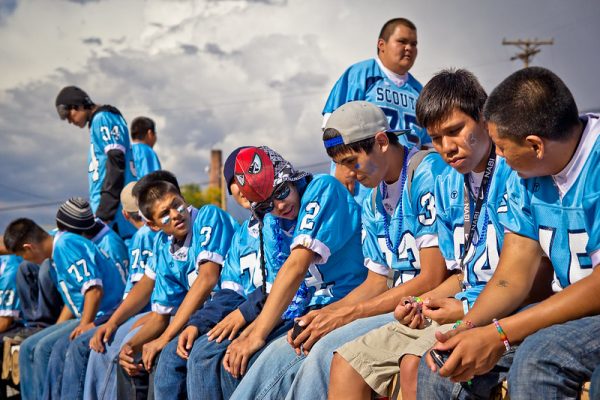
After writing several bestsellers on girls and sexuality, journalist Peggy Orenstein has turned her attention to boys. Her new book, Boys & Sex, draws from hundreds of conversations with boys and young men about how they understand and participate in sex. Many of these boys struggle with ideas about what it means to be a man and how to live up to these ideals (or not).
A desire for sex with women is a key component of “hegemonic masculinity” — the idealized, dominant form of masculinity. From a very early age, boys learn they should desire girls. For instance, preschool teachers regularly encourage “crushes” between boys and girls in their classrooms.
- Heidi Gansen. 2017. “Reproducing (and Disrupting) Heteronormativity: Gendered Sexual Socialization in Preschool Classrooms.” Sociology of Education 90(3): 255-272.
- Karin A. Martin. 1998. “Becoming a Gendered Body: Practices of Preschools.” American Sociological Review 63(4): 494-511.
Part of the way boys can demonstrate or prove their masculinity is by talking about their sexual experiences with their peers. Another way is through putting other boys down and undermining other boys’ heterosexuality with homophobic name-calling.
- C.J. Pascoe. 2007. Dude You’re a Fag: Masculinity and Sexuality in High School. University of California Press.
As boys enter adolescence, they face even greater pressure to have sex with girls to demonstrate their masculinity. However, many boys do not actually buy into these expectations — some openly reject the idea that they should be having sex with girls; others simply try to avoid the subject or deflect questions about their own sexual prowess when their friends bring it up. Those who do accept that sex with girls is part of showing their manhood often struggle with feelings of inadequacy if they do not live up to these expectations.
- Kiera D. Duckworth and Mary Nell Trautner. 2019. “Gender Goals: Defining Masculinity and Navigating Peer Pressure to Engage in Sexual Activity.” Gender & Society 33(5): 795-817.
Both social scientists and popular authors like Peggy Orenstein are contributing to public conversations around youth sex and sexuality. Their work shows the importance of understanding and addressing the sexual expectations that come with masculinity.
